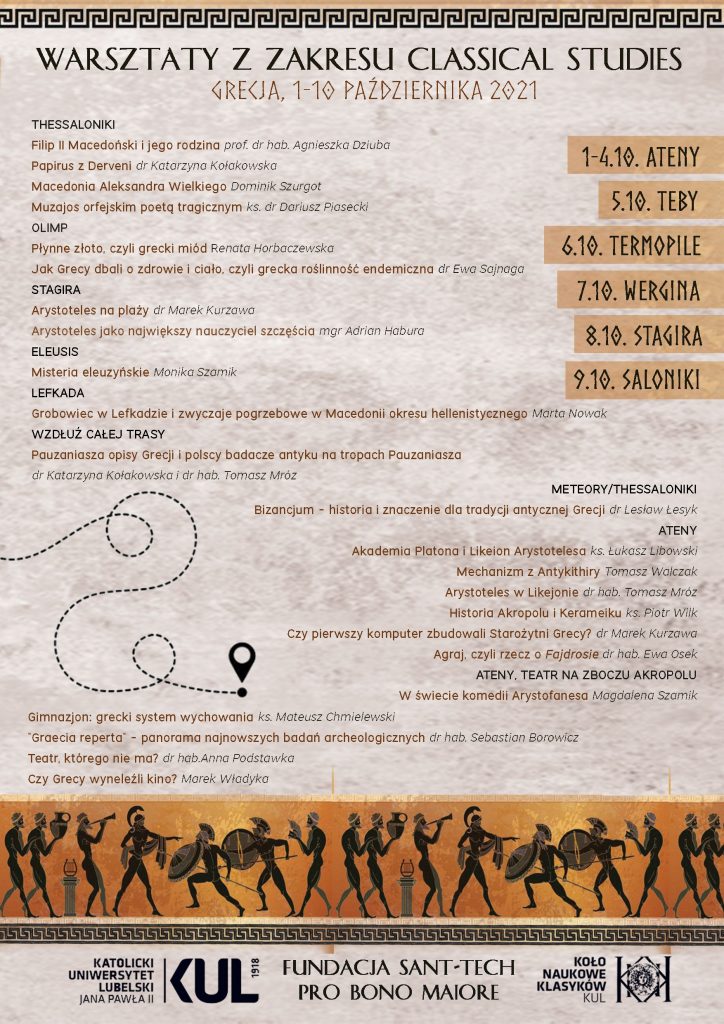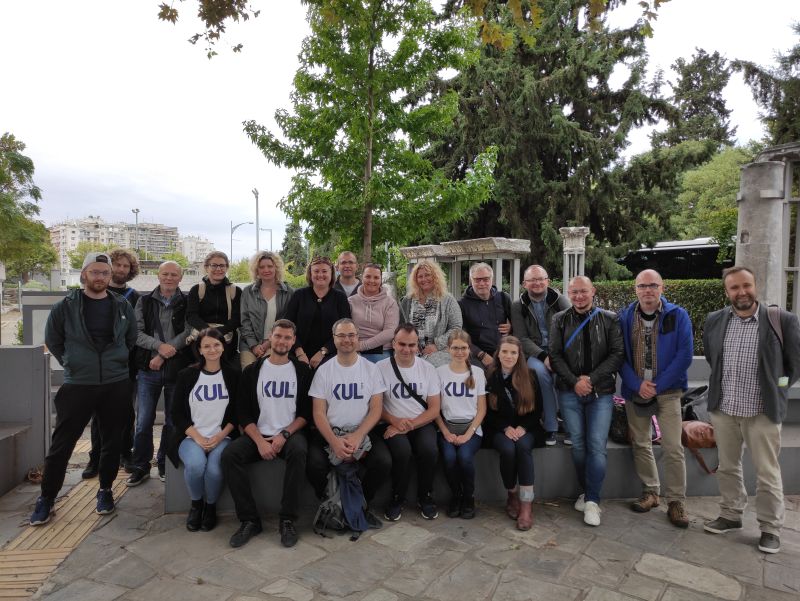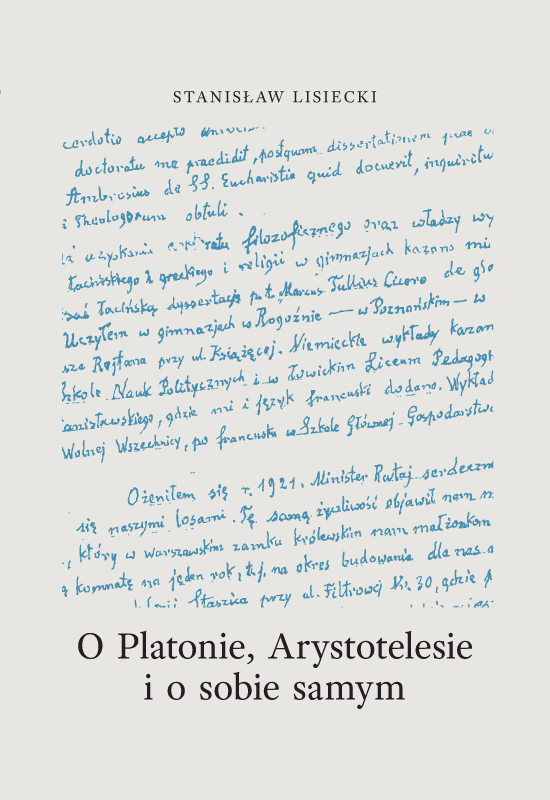Home » Posts tagged 'A. Habura' (Page 2)
Tag Archives: A. Habura
AΦR at Classical Studies Workshop in Greece

Two members of AΦR Group, together with an AΦR friend, took part in Classical Studies Workshop in Greece. This tour event took place in the first ten days of October and was organised by The Sant-Tech Foundation in co-operation with Catholic University of Lublin (KUL).
It was an unforgettable tour of Greece from Athens to Thessaloniki, including Delphi, Marathon, Meteora, Pella, Stageira and many more places of archeological interest, many of which being extremely important for philosophers and historians of philosophy, e.g. Plato’s Academy, Aristotle’s Lycaeum, ancient Stageira or Nymphaeum in Mieza. The whole stay and the journey were carefully planned by Katarzyna Kołakowska and Lesław Lesyk (both of KUL and Sant-Tech Foundation), who smoothly adapted the workshop’s schedule to unexpected conditions.
The chronological order of the papers delivered by participants from Zielona Góra is: 1) Was the First Computer Designed by the Greeks? (M. Kurzawa, at the footsteps of the National Archaeological Museum of Athens; third from the left in the photo below). The speaker focused on the history of research on the Antikythera mechanism, which is preserved in this Museum, and its unbelievable construction. 2) Aristotle in the Lycaeum (T. Mróz, in the archeological site of… Aristotle’s Lycaeum; first on the right) discussed briefly the excavations in this location and presented the outlines of the history of the Philosopher’s school.

Due to unfavourable weather conditions the following presentations were delivered en route to Thessaloniki, that is, on the bus: 3) Aristotle on the Beach (M. Kurzawa) was a paper devoted to Aristotle’s works in natural sciences and focused on his anecdotal scientific curiosity which gave rise to his theories, which still amaze us to this day. 4) Aristotle as the Greatest Teacher of Happiness (A. Habura; second from the left in the photo). The speaker presented the most essential Aristotle’s instructions on achieving happiness from the Nicomachean Ethics and highlighted their universal character, which was additionally substantiated by the studies of W. Tatarkiewicz, a recognised Polish historian of philosophy and ethician, on the same subject. 5) Polish Historians of Philosophy and Classics Scholars on Their Journeys to Greece (T. Mróz). This was rather a loose speech than academic paper and it presented three Polish scholars (W. Dzieduszycki, T. Sinko, W. Witwicki) and their memories of visiting historical places, some of which at the times of their journeys looked differently then they do today, and their observations on modern Greeks, which in turn appear sometimes to tally with today’s impressions of Greece.
Platonic Concept of Reincarnation in Polish Philosophy

The latest issue of “Studia z Historii Filozofii” (Studies in the History of Philosophy, vol. 12, iss. 1) includes a paper by Adrian Habura on an episode in Polish reception of Plato’s theory of reincarnation or transmigration of souls.
Habura aims to present Stanisław Lisieckiʼs interpretation and assessment of Plato’s concept of metempsychosis, and then position his work against the background of diverse results of W. Lutosławski and P. Siwek. Lisieckiʼs reflection on Plato, and especially on his theory of reincarnation, proves that he was an unfairly forgotten scholar, who had had knowledge, capabilities and diligence sufficient to grant him a well-deserved place in Polish historiography and reception of Greek philosophy. Due to an unfortunate set of circumstances, including Lisiecki’s abandonment of Catholic clergy and his uncertainty of the value of his own work, he worked on margins of Polish academic life in the interwar period. Yet, as far as it was possible, he attempted to reconcile Platonism and Christian thought and find consolation in a perspective of future incarnations.
Full paper, in Polish, can be downloaded from the journal’s website here.
Stanisław Lisiecki as a Forgotten Christian Platonist

Philosophical quaterly journal “Kronos” has a regular section titled “Archive of Polish Philosophy”. The latest issue (2/2020, vol. 53) includes a paper by Adrian Habura on S. Lisiecki (1872-1960) who devoted twenty years of his life to Plato, studying and translating his dialogues. Habura’s paper in Polish is titled Stanisław Lisiecki – zapomniany chrześcijanin-platonik and he argues that Lisiecki was a forgotten Christian Platonist.
In one of his studies Lisiecki researched Plato’s concept of reincarnation and pre-existence of souls. He critically examined Plato’s arguments and their conformity with Christianity. Eventually he adhered to Plato’s views and tried to combine them with the New Testament, for despite his leaving the Catholic clergy he remained a Christian thinker.
Table of contents of the journal is here.

Recent commentaries